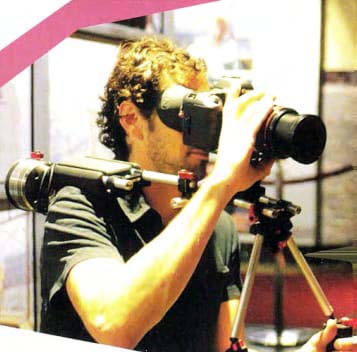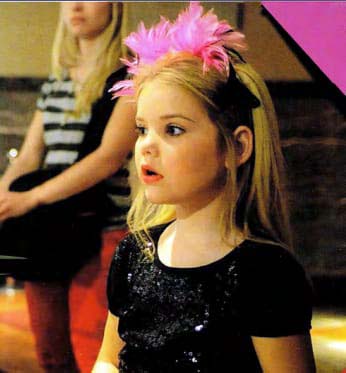
Reality TV accounts for 67% of TV programmes watched by Americans. A huge range of programme types come under the banner 'RealityTV', some of them more edifying than others. There are those which follow the pattern of one of the earliest reality shows, Big Brother, where a group of people have to co-exist in a house, their every move being filmed. Then there are the competitive shows where ordinary people compete in skills such as singing, cooking, diving, ice-skating or work-related skills like sales and entrepreneurship. Another sub-genre is the self- or home improvement/makeover type of show, such as What Not to Wear, The Biggest Loser or Hoarders. Some of the most popular realityTV shows are those of the social experiment sub-genre, such as The World's Strictest Parents, where misbehaving teens are sent to live in a less liberal family, usually in a distant country. Perhaps the most educational type which comes under the realityTVheading are the programmes that follow someone with an interesting or useful job doing their ordinary day-to-day work.This is the one type of realityTV show most parents encourage their children to watch, as they can learn about the work of police officers, paramedics, doctors, pilots and teachers.
B So how can we account for the immense popularity of reality TV? One reason it has found favour with viewers is that for most ordinary people it is their best hope of achieving at least a degree of fame or notoriety. A tiny minority might even become really famous and be rewarded with aTV show of their own. A survey of 239 people revealed that, contrary to common belief, most realityTV fans were not less sociable or less intelligent than others. It was thought that the main aim of watching such shows was to be able to discuss them with friends and co-workers. However, that has always been one of the reasons people watch any kind ofTV programme. What is different about realityTV aficionados is that they desire a rise in status and strongly value prestige. RealityTVhas produced 'stars' with little or no actual talent in conventional terms. Although they can't sing, dance or act, the force of their personality has shot them to stardom through an appearance on aTVshow. From there, many have launched careers as 'TV personalities' and achieved the wealth and fame they craved. It is no wonder, then, that so many hope to follow their example.
C One crucial point about reality TV is that the name itself is a misnomer. It is not actually 'real'. While producers don't go as far as having scripts, they edit footage in such a way as to distort what really happened. Events are twisted to create an illusion of conflict or to shape a more interesting storyline. Participants are told to adapt their own personalities to suit the requirements of the show. For example, a lady with a pleasant and gentle personality was told to 'act mean' or be ejected from the show. Similarly, though viewers assume that either judges or the voting public have the power to eliminate contestants, in fact the producers retain the decision-making power. If a candidate in a singing competition has been voted off by the public, he or she may be kept on for amusement value, not for the quality of his or her singing. One producer admitted that a '24-hour bathroom makeover' actually had a crew working on it behind the scenes for at least two weeks.
D Apart from the illusions of reality, what other criticisms are made of reality TV? Author Mark Andrejevic wrote in the New York Times in 2012 that realityTV in post 9/11 society represents the 'normalisation of surveillance'. In all our favourite TV shows, the cameras are on the participants 24 hours a day. It therefore doesn't seem so strange when our own activities are caught on CCTV as we move around our cities and workplaces. Another accusation levied at some of these shows is that they glamorise vulgarity and consumerism. f\n American show called Toddlers and Tiaras, for example, shows little girls dressing up in skimpy costumes and make-up to take part in beauty pageants. Their parents spend thousands of dollars to parade their tiny children, some barely old enough to walk, in front of judges, who evaluate their beauty, clothes and modelling skills.The children featured in this and similar shows are growing up to focus only on winning and many are totally unable to accept defeat. Many realityTV shows feature a 'confessional', where contestants are encouraged to back-stab and report on their fellow contestants. Unethical behaviour is valued and rewarded because it boosts viewing figures.The plethora of shows encouraging us to change our weight, wardrobe, job, house and car creates generations of discontented individuals who feel themselves inadequate with who they are and what they have.

E To make matters worse, the experience of being on reality TV is not what it appears. These shows are so popular with the television companies because they are so cheap to produce. The producers' aim is to get as much talent as possible for as low a price as possible. While appearing on a reality show, you can expect your expenses to be paid, but you will probably only receive $20 or $30 a day. What is more, you can expect every aspect of your background and family to be investigated in detail. Anything you would prefer to remain hidden will inevitably come out. And the person who becomes the reality star will not be 'you'. It will be a character created by the producers who happens to have your face. So, if you are longing for your 15 minutes of fame, be aware of the risks of achieving it through reality TV.
|

